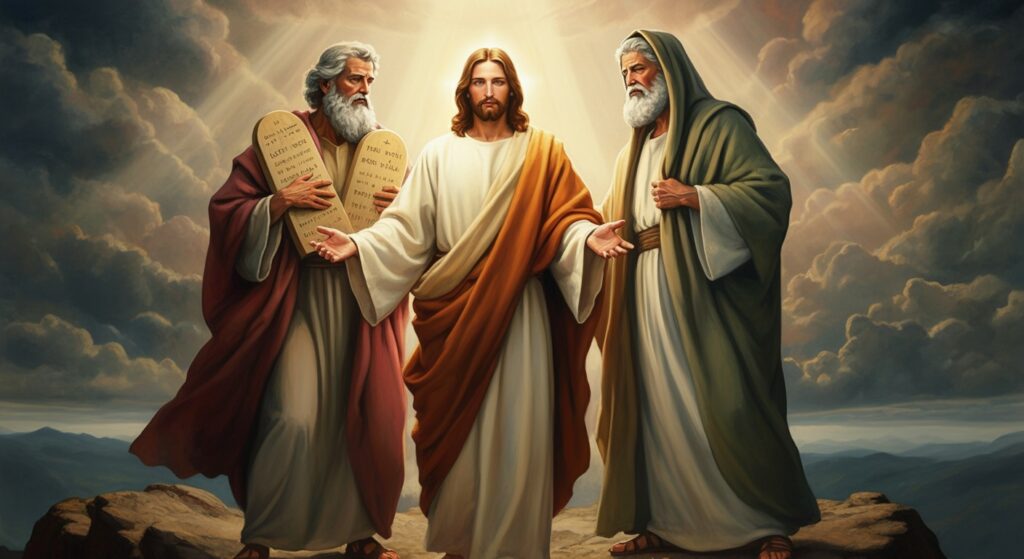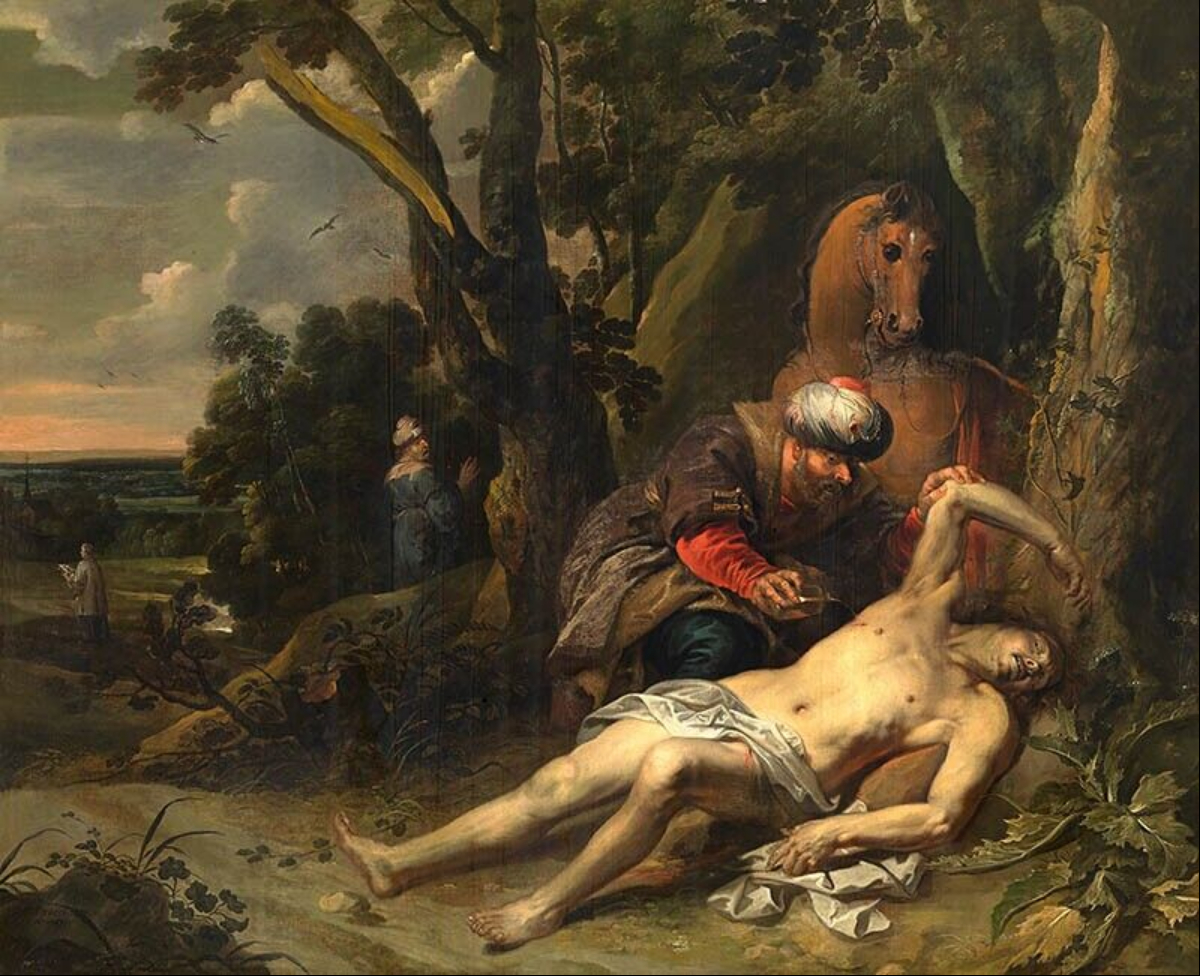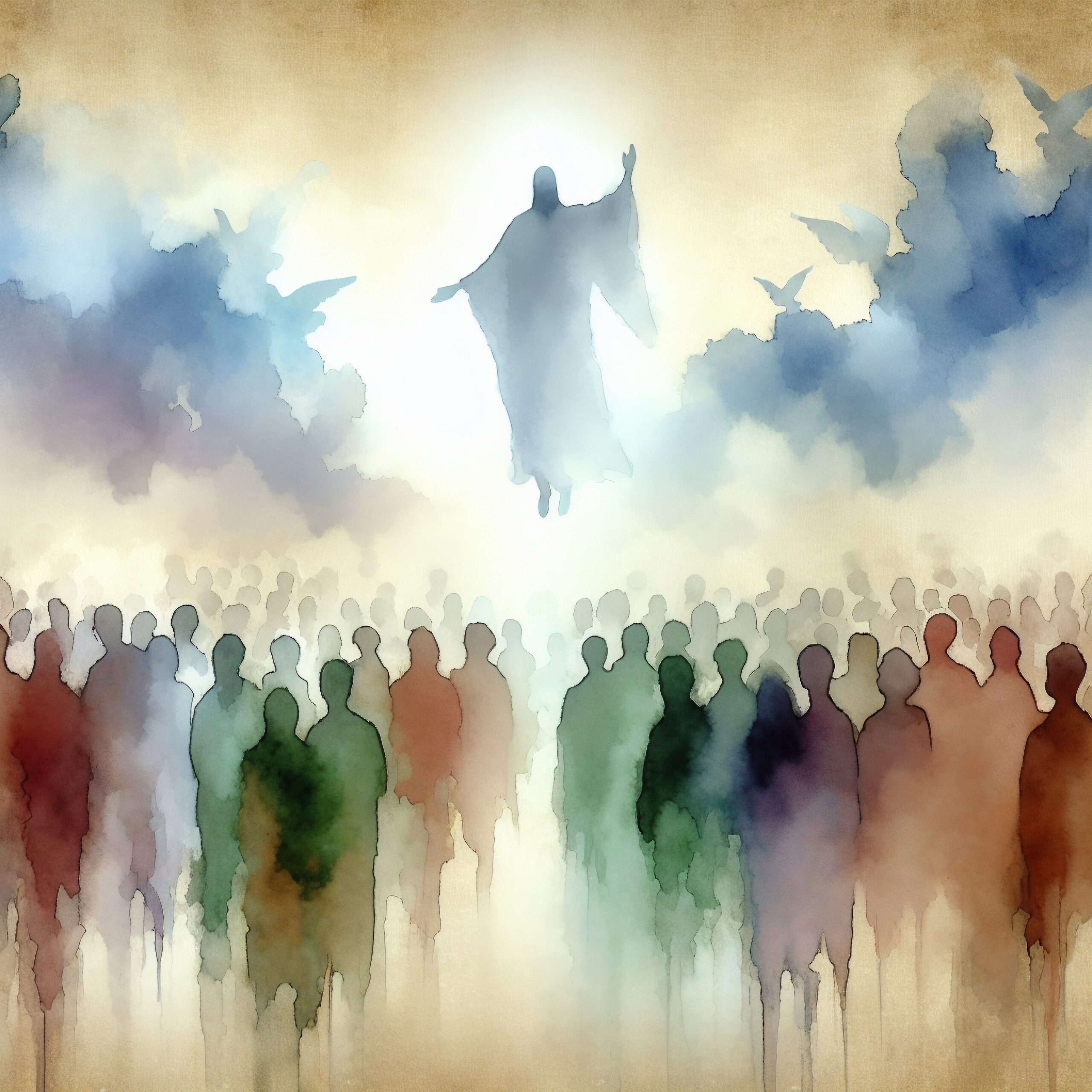“He looked for Justice but saw bloodshed” – Isaiah 5:1-7.
A landlord entrusts his vineyard to husbandmen in the hope of a bountiful return in due season.[1] Mark 12:1-9 Periodically the landlord visits and he’s mortified by what he sees. He rails at the husbandmen, banishes them, cleanses his land and starts all over. This plot is scripted several times in scripture. The Trustees violate the condition of their trusteeship, so the landlord threatens hell and some place worse.[2]Isaiah 5:1-7

Invariably the cycle repeats with varied iterations. In every one of these parables, the landlord is God. The Trustees are the children of Israel or the elites who had rule over the people.[3]Luke 20:9-19 The conditions of Trusteeship are the guardrails that God pens to ensure that those to whom He entrusts His assets will faithfully exercise their prerogatives. That sums up the essence of the law, the kernel of the Sinaitic covenant.
Why a covenant?
In their cogitation about the nature of the Abrahamic blessing, the angel reveals that the blessing of Abraham is conditional for both Abraham and his children.[4]Genesis 18:18-19 God aims to create a world in which justice and judgment reign. The articles of the covenant do not contain 613 laws. They have 10[5]Deuteronomy 4:13 and the spirit of the law is three-fold: mercy, fairness and humility before God.[6]Micah6:8 The immediate blessing of the covenant is the land and the power to impact the world for good.
The conditions of Trusteeship are the guardrails that God pens to ensure that those to whom He entrusts His assets will faithfully exercise their prerogatives.
The letters of the covenant do not promise eternal life, eternal salvation or any apocalyptic passion. The Abrahamic mandate is about building a community and a faith fuelled by love for God and the other;[7]Luke 10:26-27 a community where each one was his and her brother’s keeper;[8]Luke 10:30-37 a place where the strong bore the burden of the weak[9]Galatians 6:2 and everyone esteemed the other above him or herself.[10]Philippians 2:3 A community for which justice and judgment were foundational.
It’s packed with power and glory, but also with a weight of responsibilities and conditions. Attaining unto its power and glory requires a subscription to underlying conditions. God didn’t bestow the blessing on Abraham because he was adjudged righteous. God granted him the mandate because:
“…I know him, that he will command his children and his household after him, and they shall keep the way of the LORD, to do justice and judgment; that the LORD may bring upon Abraham that which he hath spoken of him.[11]Genesis18:19
These are the conditions of Trusteeship. They are about the vision of God for His world and the conditions to which his representatives must adhere. These conditions are called the Torah – meaning ‘guide’ and known by most as the laws of Moses. Faithful adherence to the conditions of the covenant would make the blessing of Abraham generational. Infraction of the conditions of the covenant might occasion displacement and discomfort.
Needless to say, things did not go to plan. Scripture presents differing views on why the divine vision came to a sorry pass. The book of Hebrews says the law is defective [12]Hebrews 8:7, but David says the law is perfect[13]Psalm 19:7! The evangelist writes that the law is carnal[14]Hebrews7:16 but St Paul begs to differ.[15]Romans 7:14 St Peter said the laws were burdensome, [16]Acts 15:7-10 but St John disagreed. [17]1John 5:3 Over and above what David, Paul or any other exegete writes about the law, God has plenty to say. The problem it turns out, is not with the law. Rather, it’s how the law is received and processed. As God famously complained, the religious elite did violence to the law [18]Zephaniah 3:4 by fibbing.[19]Jeremiah 8:8
The success of God’s vision for His world faced two challenges namely, environmental and human factors.
On the environmental front, as a result of the syncretic nature of ancient near Eastern ethno-cultural environment, a clear and succinct vision buckled under the weight of additions and adaptations of cultures[20]1Samuel 8:4-5 of neighbouring communities, including those in the law code of hammurabi. As St Paul wrote:
“(Touch not; taste not; handle not; Which all are to perish with the using;) after the commandments and doctrines of men?”[21]Colossians 2:21-22
These commandments do not add value to the divine vision. They esteem tradition over divine guidance[22]Matthew 15:9 and religion over a social vision.[23]Hosea 6:6 By the time they were finished, you had 613 laws which St Peter declared so burdensome that even the fathers couldn’t bear.[24]Acts 15:7-10 But these had nothing to do with the Sinaitic covenant. According to Amos, they had nothing to do with God.[25]Amos 5:25-26
God’s desire was to create a world into which He would descend and dwell with His people.
Then the human factor. The challenge that Moses had to navigate was the intersection between divine vision and human nature. For example, the Mosaic laws give allowance for divorce and remarriage, and this forms part of the ‘laws of God’. But as Malachi will later reveal, God hates divorce because it reeks of covenantal unfaithfulness.[26]Malachi 2:14 For good measure, Jesus says that the divorce provisions of the law instigate a cascade of adulteries as laws cannot break covenant unions. So why did God give the law in the first place? Well, God didn’t. It’s Moses using his discretion to circumnavigate the complex nature of human character![27]Matthew 19:8-9 Hence, God, referring to divorce provisions of the law[28]Deuteronomy 24:1-4 said:
“They say” [29]Jeremiah 3:1
not:
“I said”.
If the laws were implemented in ways that violated their purpose, the place to start would be to understand the purpose for which the laws were initially given.
Central to the aims of the covenant was the creation of a community within and over which the Shekinah would rest and preside.
As the Psalmist wrote:
“Justice and judgment are the habitation of thy throne: mercy and truth shall go before thy face.”[30] Psalms 89:14
(Tzedek and mishpat are the foundation of Thy kisse; chesed and emes shall go before Thy face.) – The Orthodox Hebrew Bible.
By the Hebrew Bible rendition of that scripture, we know that the sort of judgment (tzedek) and justice (mishpat) upon which the throne (kisse) of God is founded, is the sort from which acts of loving-kindness (chesed) and faithfulness (emes) flow.
So God Almighty did not set out to create a system where His people would be raptured to be with Him. Rather His desire was to create a world into which He would descend and dwell with His people.[31]Zechariah2:10
That’s the aim. All else are commentaries. Abraham and his children are commissioned to create such a space as a model for the rest of humanity so God might dwell with all and be God to all [32]Zechariah 2:11.
God’s vision would come under a third and fourth challenge – the theology of grace and visions of the apocalypse.
For the most part the church meshes both the ritual laws and the Sinaitic commandments into the ‘Old Testament’ and the blessedness of the ‘finished work of Christ’ is that grace supersedes the law, as the evangelist writes:
“For the law was given by Moses, but grace and truth came by Jesus Christ”.[33] John 1:17
The theology of grace which renders the law obsolete ignores the purpose of the law with rampant abandonment – the creation of a habitation of justice and judgment.
To appreciate how insidious our reading of grace over law has been to the divine vision, let’s flesh out what God means by ‘judgement and justice’, and why it’s so important that God makes them His dwelling in the midst of His people.
The words roughly translated as justice and judgement are Hebrew words which require contextual reading for clear understanding. Justice, or mishpat (מִשְׁפָּט) in the Hebrew Bible, has two aspects: retributive and restorative. More often than not, mishpat is used by biblical writers to refer to restorative justice—not stopping at punishment for wrongdoing but going beyond to what brings healing.[34]https://bibleengagementproject.com/en/Blog/What-Does-the-Bible-Say/A-Portrait-of-Biblical-Justice# So when Amos says: “But let judgment run down as waters, and righteousness as a mighty stream”,[35]Amos 5:24 he uses mishpat (retributive justice) which is often used complimentarily with zedakah (restorative justice). The former is the standard to which a society must adhere and the latter is the mutual responsibility of each party to the covenant to establish those standards. It’s about building societal structures that obviate the need to fling a coin to a beggar.
There’s a huge ministry within the body of Christ that’s largely unfulfilled. There’s a calling upon the church that’s yearning for an engagement. The church’s part of the Abrahamic mandate is the elephant in the room. The Church lays claim to the blessing of Abraham but dismisses the underlying conditions. It says grace supersedes the law.
Law was never meant to be a ticket to eternal life and grace has so far not delivered a community of faith with enduring values of compassion and mercy.
The manner in which the church conflates the aims of the law with the aims of the cross is mind-boggling! To start with, the law is about the construction of society as an ethical enterprise, the cross is about the gift of eternal life [36]John 6:51. The law is about God coming to live with His children while the cross is about His children eventually going to live with Him. The point is that law and grace are not mutually exclusive. Law was never meant to be a ticket to eternal life and grace has so far not delivered a community of faith with enduring values of compassion and mercy.
The supersession of law by grace has not brought the Church any closer to the divine vision of a world that we see briefly in the early church.[37]Acts 4:32 Rather, it’s countries with declining faith culture that are increasing in love for the other through various humanitarian endeavour.
In His teachings, the Lord Jesus plots several parables to present the faith community as an experiment in socio-ethical enterprise. From the Beatitudes[38]Matthew 5 to the judgment of the goats and lambs[39]Matthew 25:31-46, the Good Samaritan[40]Luke 16:19-31, the woman with the alabaster jar of oil[41]Matthew 26:6-13, the rich, young ruler[42]Mark 19:17-27, the unjust servant[43]Luke 16:1-13 our Lord Jesus Christ throws Himself into the fray. Time and again He stresses the impact that love and compassion will have on the faith community, our relationship with Him and our eternity. However, the teachings of Christ are superseded by a passion for the apocalypse and longing for eternity. The apostles were sure that the end time was so near that St Paul even taught there wasn’t time for folks to be getting married. Proclaiming the end time slam bang in the middle of time set everyone off on an individual race for salvation. This had a deleterious effect on building a community to match the divine vision.
It is also counter-intuitive to lay claim to being heirs of the Abrahamic blessing but dispense with the conditions of Trusteeship. As Jesus Christ says:
“…If ye were Abraham’s children, ye would do the works of Abraham”.[44]John8:39
References
| ↑1 | Mark 12:1-9 |
|---|---|
| ↑2 | Isaiah 5:1-7 |
| ↑3 | Luke 20:9-19 |
| ↑4 | Genesis 18:18-19 |
| ↑5 | Deuteronomy 4:13 |
| ↑6 | Micah6:8 |
| ↑7 | Luke 10:26-27 |
| ↑8 | Luke 10:30-37 |
| ↑9 | Galatians 6:2 |
| ↑10 | Philippians 2:3 |
| ↑11 | Genesis18:19 |
| ↑12 | Hebrews 8:7 |
| ↑13 | Psalm 19:7 |
| ↑14 | Hebrews7:16 |
| ↑15 | Romans 7:14 |
| ↑16, ↑24 | Acts 15:7-10 |
| ↑17 | 1John 5:3 |
| ↑18 | Zephaniah 3:4 |
| ↑19 | Jeremiah 8:8 |
| ↑20 | 1Samuel 8:4-5 |
| ↑21 | Colossians 2:21-22 |
| ↑22 | Matthew 15:9 |
| ↑23 | Hosea 6:6 |
| ↑25 | Amos 5:25-26 |
| ↑26 | Malachi 2:14 |
| ↑27 | Matthew 19:8-9 |
| ↑28 | Deuteronomy 24:1-4 |
| ↑29 | Jeremiah 3:1 |
| ↑30 | Psalms 89:14 |
| ↑31 | Zechariah2:10 |
| ↑32 | Zechariah 2:11 |
| ↑33 | John 1:17 |
| ↑34 | https://bibleengagementproject.com/en/Blog/What-Does-the-Bible-Say/A-Portrait-of-Biblical-Justice# |
| ↑35 | Amos 5:24 |
| ↑36 | John 6:51 |
| ↑37 | Acts 4:32 |
| ↑38 | Matthew 5 |
| ↑39 | Matthew 25:31-46 |
| ↑40 | Luke 16:19-31 |
| ↑41 | Matthew 26:6-13 |
| ↑42 | Mark 19:17-27 |
| ↑43 | Luke 16:1-13 |
| ↑44 | John8:39 |


